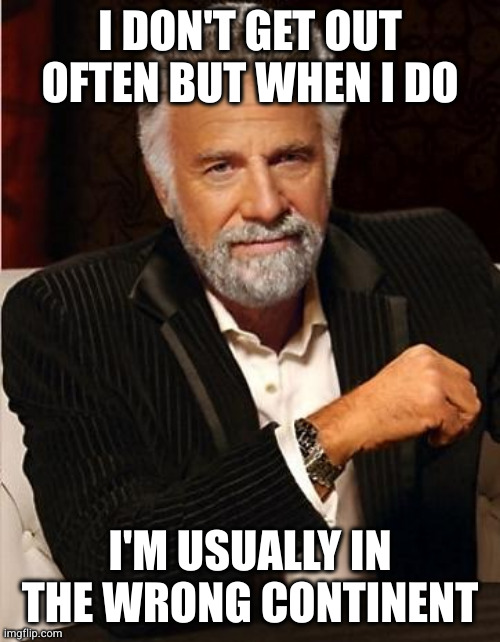The EU is to change the law to make social media owners and company executives personally liable with fines, or potential jail sentences, for failing to deal with misinformation that promotes violence. That’s good, but teaching critical thinking is even more important.
AI is about to make the threat of misinformation orders of magnitude greater. It is now possible to fake images, video, and audio indistinguishable from reality. We need new ways to combat this, and relying on top-down approaches isn’t enough. There’s another likely consequence - expect lots of social media misinformation telling you how bad critical thinking is. The people who use misinformation don’t want smart, informed people who can spot them lying.
How long until some dumbfuck waste of carbon conservative declares this to be woke?
Or has it happened already?
They will coopt the curriculum and force the teaching of Bible studies, probably
Woke is an adjective derived from African-American Vernacular English originally meaning alertness to racial prejudice and discrimination.
Yes it’s woke. Yes that’s good. I’ll never shy away from calling out the right’s ridiculous demonisation of anti-racism…
Edit: Also yea, I bet Nigel Farage or some other Reform fool is already yelling into the void about this.
I feel like I was half-taught critical thinking, but mostly, I was taught to value it. I remember adults kept telling us to use our critical thinking skills and I knew it was important but I had no idea what they meant. I look back and see traces of being taught those skills here and there but it wasn’t until later that I got a clearer picture. I think the closest was a media literacy class in HS where we were asked to sort news articles as either fact or opinion and that’s where things began to click for me that got the ball rolling.
For all the shit people like to talk about public school, I think they did a good job overall. I had great teachers who were passionate about their jobs, had big hearts, and knew what we needed to learn.
Canada here. I feel like I wasn’t taught critical thinking, either directly (eg, how valid is an argument) or indirectly (eg, evaluating research), until undergraduate. High school didn’t really tap critical thinking. Science and math were about learning skills, history was just memorizing a narrative, English was reading comprehension, writing ability, and literary theory.
Also, in the last 15-20 years, we’ve went from widely thinking that online sources are untrustworthy and that using Wikipedia was lazy to the mainstream never talking about being a critical user of the online world and people from students to politicians using chatgpt to write their assignments.
On another note, I wonder if susceptibility to far-right misinformation is purely a critical thinking issue and not also about a lack of cultural/intersectional self-reflection and awareness. I spoke to a family member recently (we’re White), and he caught me completely off-guard by ranting about how White people are being erased (eg, no White people in a group of people in an ad he saw). I didn’t know how to respond - I think that’s an absurd concern - and I still don’t, but his perspective seemed informed by a lack of more than just critical thinking
On another note, I wonder if susceptibility to far-right misinformation is purely a critical thinking issue and not also about a lack of cultural/intersectional self-reflection and awareness.
So I read a lot of psychology by researchers looking at things like decision making and bias, and I’ve seen several of them acknowledge falling prey to the same things they research. Additionally, being better at logic makes you better at motivated reasoning.
Knowledge is absolutely valuable (and gives you tools to identify the failures after the fact, which has its own value), but your belief that self evaluation and a consistent effort to improve your process is also critically important is accurate. If you don’t make the effort, the knowledge doesn’t do a lot.
Edit: A source for the motivated reasoning, though it’s something I’ve seen referenced by a lot of sources with a variety of different original research behind it.
It must be nice to have a government that takes reasonable action when the social contract goes wrong instead of “Thoughts and prayers. Here. Have more poorly trained cops.”
Twenty years too late.
To be fair every school I ever went to in the US said they were teaching critical thinking skills but never directly tackled it. And I think that’s a big problem. We need to teach people a specific set of skills.
Better late than never I guess.
change the school curriculum so English schoolchildren are taught critical thinking skills
Is this… not currently taught?
It is conveniently left out in many large countries, one wonders what motivation they might have to skip on this skill?
The motivation centers around capitalism. Critical thinkers aren’t going to reach for their wallet every time they see a stupid advertisement featuring dancing penguins. As a bonus to the corporatocracy, the brain dead electorate with no critical thinking skills vote for the people who will make their life worse.
Tbh considering how it is a method, not a subject really, I think it is indirectly taught in so many subjects: math, literature, philosophy, biology, physics and more.
I really don’t see the point of teaching it as a standalone subject, although I would be curious to see how that works.
It’s kind of implied rather than explicitly taught, and even then only really in certain subjects after those subjects become optional.
The misanthrope in me questions how many of the people in the mobs paid attention in school in the first place. You can’t just hammer stuff into kids heads, you need to inspire them to love learning and I doubt we will be getting that.
Kiwi here, WTH is critical thinking, anyway?
We don’t get taught shit, now they just present some content or ideas and hope we magically absorb it
Critical thinking is being able to question things and figure out if it’s bullshit basically.
Like the accented farter said, critical thinking is a set of skills and the practice necessary to learn them that allows one to examine any given idea and judge the credibility, usefulness, and accuracy present (or lack thereof).
It also involves a minor degree of language and reading comprehension as an underlying prerequisite. You don’t have to be more than basically literate, and close to fluency with a given language to make use of the skills. That’s important because some people think that critical thinking can’t be effectively taught before a given age (usually stated as early as tweens and as late as high school). But as long as the person can process language well enough to understand basic questions, you can lay the groundwork for it as early as kids start school anyway.
Chur! Thanks for the great response!
Why is this kiwi on sh.itjust.works, rather than lemmy.nz? :)

Haha, nice.
Cheers mate, welcome to Canada! Hope you like it here.
Critical thinking is crucial and I’m amazed at how many people can’t do it. You just have to parse through ideas and especially portrayals.
Motivated reasoning is a hell of a drug.
Oh, now we need critical thinking skills.
deleted by creator
I’m highly skeptical of teaching critical thinking, personally. Isn’t that an oxymoron?
It would be hypocritical if you forced them to accept what you were teaching without questioning it. No good education institution behaves that way.
Yeah, exactly.
The thing I always think about when someone says misinformation is who decides. The ministry of truth?
Critical thinking means that you have the right tools to decide yourself if something is misinformation or not
So u do see the issue with this headline
I see that you could do with this type of education.
Use your words, mate – what exactly do you think is wrong with teaching critical thinking skills? Do you understand that they’re not going to just “say something is misinformation” but teach kids to be able to evaluate whether something is likely going to be bullshit or not, among other skills?
I thibk they absolutly should be teaching critical thinking that is the point of education isnt it? Do you not see the issue of saying xyz happened due to misinformation (theg are saying sonthing is misinformation) therefore we should teach critical thinking (allowing individuals to detect misinformation themselves). You canot dictate that somthing is misinformation while advocating for people to decide what is misinformation themselves.
Can you elaborate?
No, it’s the Ministry of Silly Walks, of course!










